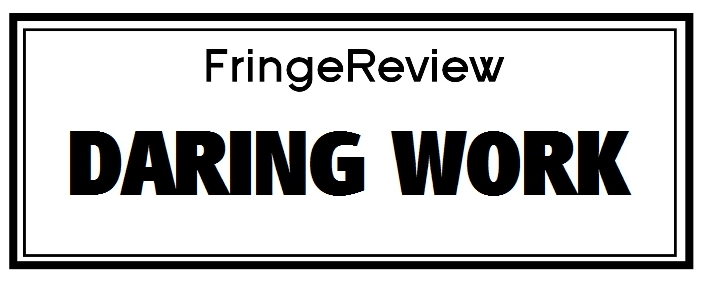Edinburgh Fringe 2019

Low Down
Drowning is a boldly designed telling of a fascinating story – that of four Austrian nurses who in 1991 were charged with murdering 49 patients in their beds (and are thought to have killed many more).
In an interesting mix of theatrical vibes, Drowning sets out to ask what makes a murderer.
A slightly different blending might have resulted in something either more shockingly dark, or more darkly funny.
Review
The writer of Drowning, Jessica Ross, has unearthed a fascinating story – that of four Austrian nurses who in 1991 were charged with murdering 49 patients in their beds (and are thought to have killed many more). She sets out to ask what makes a murderer, and explores the fictionalised backgrounds of the four women in an attempt to make sense of their actions.
Drowning is boldly designed and makes some brave creative choices, not least using opera arias to accompany two of the murders. It has a blend of vibes, including surreal staging, dark humour, feminist themes, cheesey 80s music and full-on confessional monologues.
The staging consists of four bathtubs that the actors are seated in as they start a structured introduction a little reminiscent of Chicago’s Cell Block Tango, Paul Gabriel’s lighting design being used to best effect here. A little less subsequent moving of the bathtubs might have kept the momentum running more smoothly.
As the story unfolds we discover the nurses’ dark secret, and meet the protagonist Waltraud (Evelyn Edwards) and her followers Irene (Played by Ross herself), Stephanie (Andrea Helene) and Maria (the opera singing Aurora Henning). The foursome are clear archetypes, and all damaged in their own ways; their dialogue quite on the nose.
There are touches of dark humour that perhaps hint at a different version of this piece.
It has an interesting structure. We are nearing the end of the narrative before we hear each of the characters’ confessional monologues – here is where we hear something of their background, and perhaps what has led them to murder. But we hear it after we have formed our options and judgements about them. Perhaps this forced ambivalence is intentional.
It is a tricky balance to take a story as bleak as this and ask us to empathise or connect in some way with the perpetrators. Drowning steers a line between macabre reality, dark humour and an empathy with these women who have their own issues. It is the surreal humour that is most risky, and most successful. I’d like to see a version of Drowning that really pushed out that particular fishing boat.
Drowning plays at Pleasance Courtyard until 26 August



















































